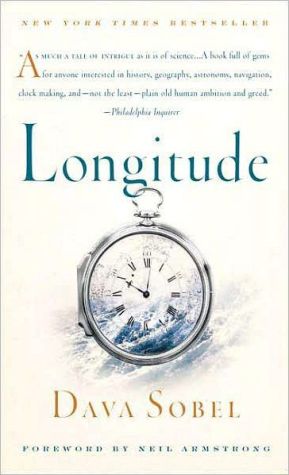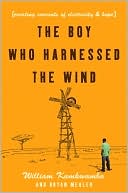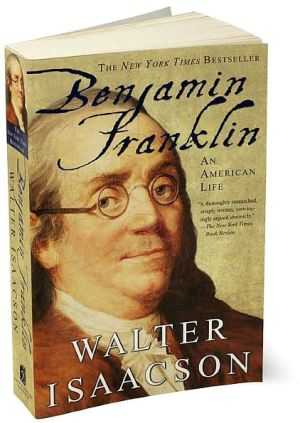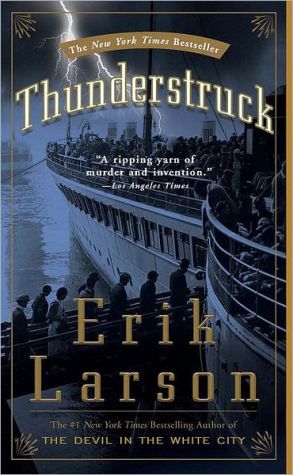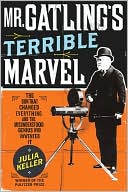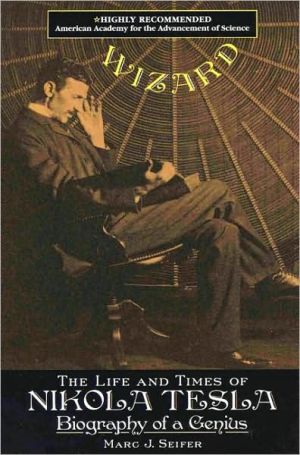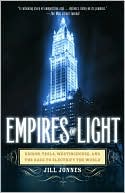Longitude: The True Story of a Lone Genius Who Solved the Greatest Scientific Problem of His Time
Anyone alive in the eighteenth century would have known that "the longitude problem" was the thorniest scientific dilemma of the day -- and had been for centuries. Lacking the ability to measure their longitude, sailors throughout the great ages of exploration had been literally lost at sea as soon as they lost sight of land. Thousands of lives, and the increasing fortunes of nations, hung on a resolution.\ The quest for a solution had occupied scientists and their patrons for the better part...
Search in google:
Anyone alive in the eighteenth century would have known that "the longitude problem" was the thorniest scientific dilemma of the day and had been for centuries.The quest for a solution has occupied scientists for the better part of two centuries when, in 1714, England's Parliament upped the ante by offering a king's ransom to anyone whose method or device proved successful. One man, John Harrison, dared to imagine a mechanical solution a clock that would keep precise time at sea, something no clock had ever been able to do on land.LONGITUDE is the dramatic human story of an epic scientific quest, and of Harrison's forty-year obsession with building his perfect timekeeper, known today as the chronometer. Full of heroism and chicanery, brilliance and the absurd, it is also a fascinating brief history of astronomy, navigation, and clockmaking. Through Dava Sobel's consummate skill, LONGITUDE opens many new windows on our world."The marine chronometer is a glorious and fascinating... New York Times This is a gem of a book.
Acknowledgmentsvii1.Imaginary Lines12.The Sea Before Time113.Adrift in a Clockwork Universe214.Time in a Bottle345.Powder of Sympathy416.The Prize517.Cogmaker's Journal618.The Grasshopper Goes to Sea749.Hands on Heaven's Clock8810.The Diamond Timekeeper10011.Trial by Fire and Water11112.A Tale of Two Portraits12613.The Second Voyage of Captain James Cook13814.The Mass Production of Genius15215.In the Meridian Courtyard165Sources177Index181
\ New York TimesThis is a gem of a book.\ \ \ \ \ B. WrightAn extraordinary book.\ \ \ PeopleAbsorbingelegant.\ \ \ \ \ Publishers WeeklyWhile sailors can readily gauge latitude by the height of the sun or guiding stars above the horizon, the measurement of longitude bedeviled navigators for centuries, resulting in untold shipwrecks. Galileo, Isaac Newton and Edmund Halley entreated the moon and stars for help, but their astronomical methods failed. In 1714, England's Parliament offered 20,000 (equivalent to millions of dollars today) to anyone who could solve the problem. Self-educated English clockmaker John Harrison (1693-1776) found the answer by inventing a chronometer-a friction-free timepiece, impervious to pitch and roll, temperature and humidity-that would carry the true time from the home port to any destination. But Britain's Board of Longitude, a panel of scientists, naval officers and government officials, favored the astronomers over humble ``mechanics'' like Harrison, who received only a portion of the prize after decades of struggle. Yet his approach ultimately triumphed, enabling Britannia to rule the waves. In an enthralling gem of a book, former New York Times science reporter Sobel spins an amazing tale of political intrigue, foul play, scientific discovery and personal ambition.\ \ \ \ \ Library JournalIf you've grown up at a time when orbiting satellites were taken for granted, you'd probably not find reading a book about longitude an enticing prospect. But Sobel, an award-winning former science reporter for The New York Times who writes frequently for Audubon, Discover, LIFE, and Omni magazines, has transformed what could have been a dry subject into an interesting tale of scientific discovery. It is difficult to realize that a problem that can now be solved with a couple of cheap watches and a few simple calculations at one time appeared insurmountable. In 1714, the British Parliament offered a king's ransom of 20 million ($12 million in today's currency) to anyone who could solve the problem of how to measure longitude at sea. Sobel recounts clockmaker John Harrison's lifelong struggle to win this prize by developing a timepiece impervious to the pitch and roll of the sea. His clock, known today as the chronometer, was rejected by the Longitude Board, which favored a celestial solution.--James Olson, Northeastern Illinois Univ. Library, Chicago\ \ \ \ \ Library JournalWe take so much for granted. Few of us have ever thought about why and how sailors navigate without becoming lost the moment land is no longer in sight. In fact, prior to the 18th century, whole navies, thousands of lives, and great fortunes were lost because no one knew how to measure longitude. Here is the story of the growing need, the parliamentary offers of huge awards, the politics, the frustrations, and the eventual success of John Harrison. An unschooled woodworker, Harrison developed the chronometer, which was much criticized at the outset in part because competition for the princely rewards was so fierce. The interlocking histories of astronomy, clocks, and navigation reveal the significance of the problem to the seagoing world, the parallel efforts to find answers, and Harrison's drive for perfection and resolution. While the complexities of the problems and personalities are not always easy to follow here, this abridged recording is nonetheless an interesting chronicle of scientific achievement.\ \ \ \ \ School Library JournalOpening with a chapter that outlines what follows, Sobel whets readers' appetites for hearing the colorful details of the search for a way for mariners to determine longitude. In an age when ships' stores were limited and scurvy killed many a seaman, missing a landfall often meant death-as, of course, did running aground. Sobel provides a lively treatment of the search through the centuries for a ready answer to the longitude problem, either through using lunar tables or through making an accurate clock not subject to the vicissitudes of weather and ocean conditions. Her account includes not only scientific advances, but also the perseverance, pettiness, politics, and interesting anecdotes that figured in along the way (it wasn't limes, for example, that first prevented scurvy on English ships, but sauerkraut). A pleasing mixture of basic science, cultural history, and personality conflicts makes this slim volume a winner.-Judy McAloon, Potomac Library, Prince William County, VA\ \ \ \ \ BooknewsThis smart little (5x7.5") book contains the engrossing story of John Harrison's (1693-1776) 40-year obsession with the "the longitude problem" which resulted in what is known today as the chronometer, a tool that finally made accurate ocean navigation possible. Annotation c. Book News, Inc., Portland, OR (booknews.com)\ \ \ \ \ B WrightAn extraordinary book.\ \ \ \ \ The New York TimesThis is a gem of a book.\ \ \ \ \ PeopleAbsorbing, elegant.\ \ \ \ \ Entertainment WeeklyBeautifully written.\ \ \ \ \ Chicago Sun-TimesA perfect marriage of art and words.\ \ \ \ \ Washington Post Book World\ "A simple tale, brilliantly told."\ \ \ \ \ The New York Times\ "A gem of a book."\ \ \ \ \ Philadelphia Inquirer\ "For anyone interested in history, geography, astronomy, navigation, clockmaking, and--not the least--plain old human ambition and greed."\ \ \ \ \ Newsweek\ "Intricate and elegant…No novelist could improve on the elements of Dava Sobel's Longitude."\ \ \ \ \ From the Publisher\ “A simple tale, brilliantly told.” —Washington Post Book World\ \ “A gem of a book.” —The New York Times\ \ “As much a tale of intrigue as it is of science…for anyone interested in history, geography, astronomy, navigation, clockmaking, and—not the least—plain old human ambition and greed.” —Philadelphia Inquirer\ \ “Intricate and elegant…No novelist could improve on the elements of Dava Sobel’s Longitude.” —Newsweek\ \ \
